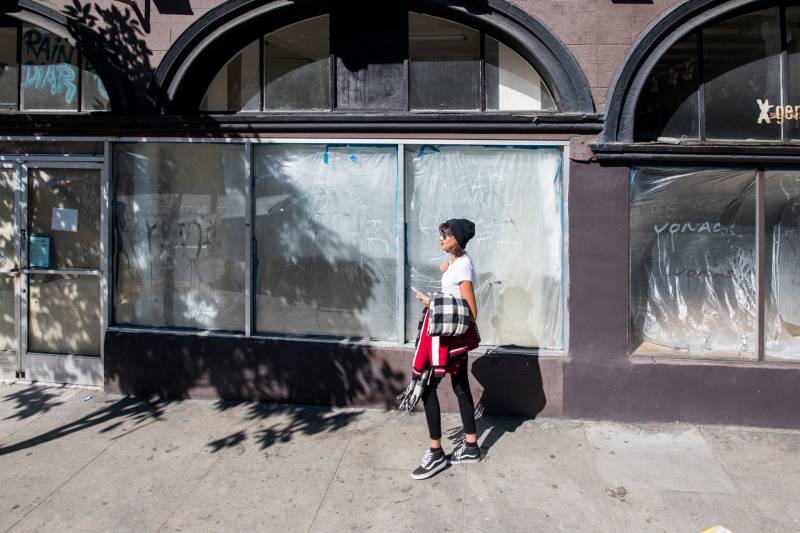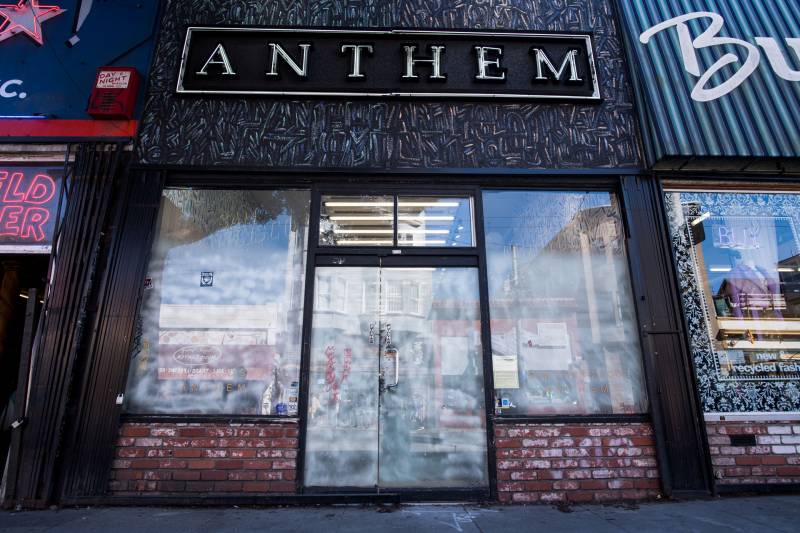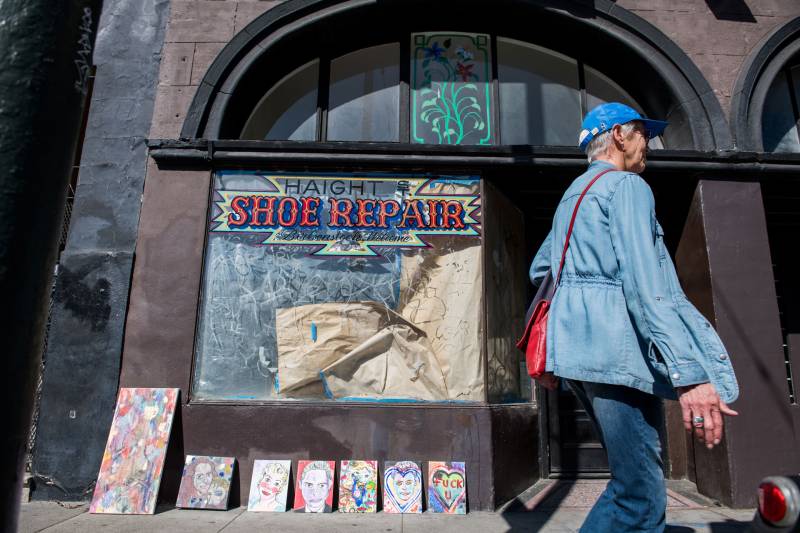San Francisco residents will soon decide if property owners of longtime vacant storefronts should pay additional taxes.
Proposition D, on the March 3 primary ballot, marks the latest effort to curb the increasing number of empty storefronts that have sprung up throughout the city in recent years. Under the measure, championed by Supervisor Aaron Peskin, property owners in the city’s roughly 40 neighborhood commercial districts — including Union Street, Japantown and Haight Street — would have to pay $250 per linear foot of ground-floor retail space that has sat vacant for more than 182 days. That tax would double to $500 the following year and $1,000 annually thereafter.
The measure requires the approval a two-thirds supermajority and would take effect in 2021.
Like many parts of San Francisco, the Haight-Ashbury has its fair share of shuttered storefronts. Christin Evans, who has owned The Booksmith in the neighborhood for over a decade, said long-term vacancies have spiked in recent years.
“The longest vacancy is the Haight Shoe Repair, which has been vacant since 2015, since the owner retired,” she said, noting that there are more vacancies now than even during the “lean recession years.”
“Two storefronts down you’ll see there’s also what used to be a kids clothing store, for kids only, and that one’s been vacant since 2016. And then next to it is X Generation, which has been vacant since 2017,” Evans added.

The blame, she said, rests squarely on large real estate interests in the city that have caused rents to skyrocket.
“So while sales are still very healthy, [and] Haight Street’s a very attractive place for people to come and spend their time, rents have gone up higher than the sales,” Evans said. “And so it makes it challenging for business owners to make a profit.”
The empty storefronts don’t just create blight in the neighborhood, she added. They also impact her business by reducing foot traffic.
“People would go to the kids clothing store and then come to the bookstore as well,” Evans said. “A good percentage of our customers were overlapping. Now, people that are looking for a kids clothing store are gonna go to another location.”
Supporters of the Yes on D campaign argue that higher property values have incentivized owners to sit on vacant storefronts until wealthier renters come along.
The measure has broad support among city leaders, including backing from Mayor London Breed, every supervisor and multiple business and merchant associations.

Opponents of the proposed vacancy tax, including the San Francisco Republican Party and a number of local real estate interests and individual property owners, argue the empty storefronts are a government-created problem.
Among them is Mark Borsuk, a San Francisco real estate broker and attorney, who cites hurdles created by city bureaucracy, such as costly, time-consuming permitting processes and the need for multiple inspections.

